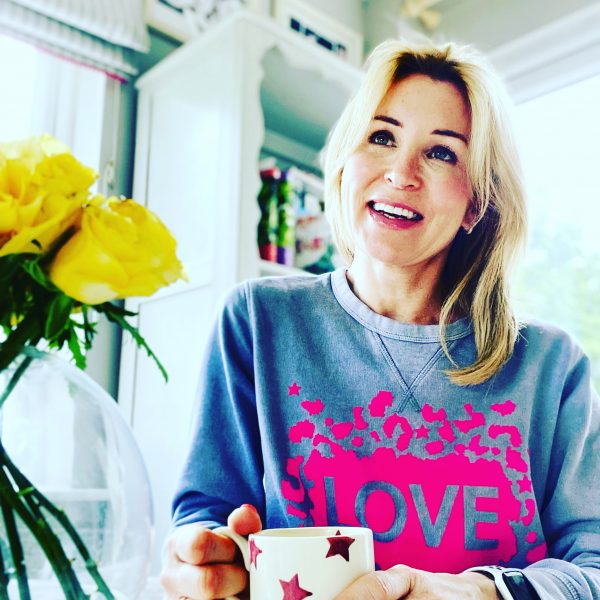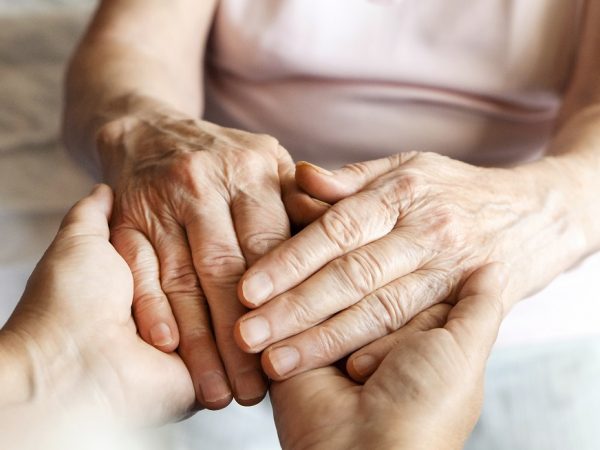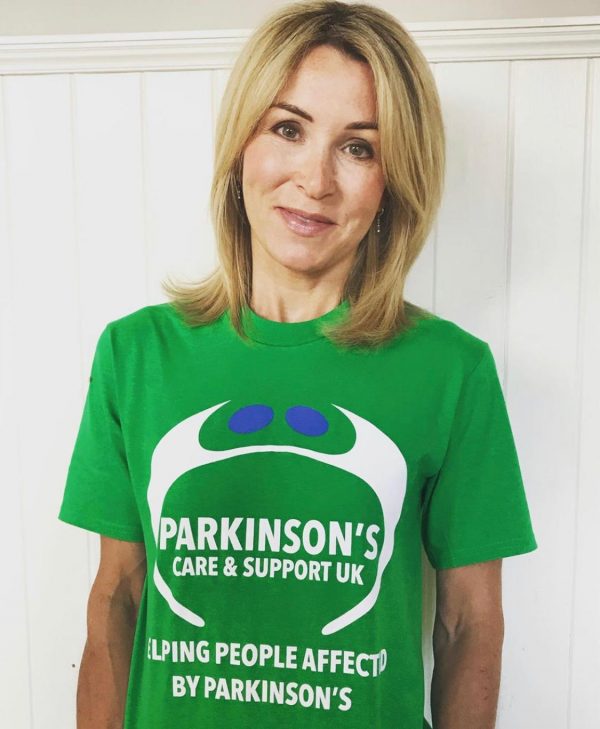
My Grandmother and Parkinson’s
I have lived with Parkinson’s in my life for as long as I can remember. It was my Grandmother to begin with. Through the eyes of a young child I remember her swollen ankles, her shuffling slow steps and her trembling hands and just accepted that this was how she was. She used a frame to walk until she had so many falls that she had to be moved to a nursing home where we often visited with gifts, fresh flowers, fruit or her favourite chocolate bar. I must have been not much older than 6 years old, wearing a pretty dress and remembering to make polite conversation to her and the rest of the elderly residents whilst their eyes were glued to the TV in their communal sitting room. It wasn’t my favourite place to visit, it smelt musky and was just quite a depressing place to be. I used to pray that the staff would be kind to everyone after we had left and that their smiles there were not just for show. Thankfully I don’t think they were.
My Mother and Parkinson’s
At this time I still did not know anything about Parkinson’s and I certainly wasn’t aware that it might be hereditary. Even when my Mother was 60 and sat me down to explain that she had Parkinson’s, (I was 31 at the time), despite being shocked and very sad, I didn’t think for a moment that 15 years later I would be diagnosed with the same disease. It simply wasn’t talked about and, more importantly my Mother would not have wanted me to worry. I also have a brother and sister, 9 and 10 years my senior so surely if anyone was to be diagnosed first it would be one of them?
My Mother’s way of coping with her condition was not to talk about it and my Father always describes her as stoic to the end. (She passed away in 2018 at the age of 73, her final year spent in a nursing home with her mattress having to be placed on the floor due to the severity of her movements at night).
I’m not sure that not showing her feelings, or discussing any of the hardship she was experiencing as a result of Parkinson’s, helped any of us in the long run. She was a woman determined to continue as best she could, and whilst my parents did enjoy many happy holidays and good times with their friends and with family living with the disease, I think that not talking about it may have made her conditions worse.
The best version of her quick witted, glamourous self was when she roared with laughter, the best kind where your tummy aches so much because you simply can’t stop. However I also witnessed the masked face, a common side-affect of Parkinson’s, causing the loss of facial expressions, making it difficult to interpret her mood and intentions, and the depression and more common, anxiety every time she went out. I can’t help thinking that by talking about her condition, a little more, we might have been able to understand and do more to help.
However that is not what she wanted. She would have hated sympathy and pity and instead buried her angst and put on a brave face. She used to say to me if you repeat “I am happy, happy, happy” every morning then it will put you in the right frame of mind for the day ahead. I couldn’t agree more but I also think it would have helped her to admit when she was feeling “angry, angry, angry.”
What could have been immensely valuable was a resource where she could talk to others of a similar age with Parkinson’s. Not so that they could dwell in a communal misery, but more to take comfort in the fact that there were other people going through similar experiences, and also to be able to learn from others as to what helped them on a day to day basis and discuss topics such as exercise, diet, mental health, work, family life etc.


Me and Parkinson’s
The roles have now been reversed and it is now my turn to live my Parkinson’s journey. In some ways my family may prefer me to stop raising my head above the parapet, but not only would that be history repeating itself but what good would that do to help others living with Parkinson’s? I believe strongly that my children should be brought up feeling safe in the knowledge that not only can they discuss anything with my husband and me, but also that as a parent I should lead by example and show the positive impact this can have on others.
I was diagnosed with YOPD (Young Onset Parkinson’s Disease), in March, 2021, age 46 having spent the last couple of years wondering about my symptoms. A slight scuffing and dragging of my left foot noticed by my husband on a walk and quickly dismissed my me, to the slowness of my left arm swing and general lack of co-ordination on my left-hand side. I thought at first these might just be a result of getting older, or muscle related injuries as a result of my job as a fitness instructor rather than anything else and then I turned to Google. Me -“Why does my left arm not swing when I walk?” Google – “Irregular arm swing could be early sign of Parkinson’s.” (Medical News Today).
Oh.
It was then that I walked up the stairs to my husband who was in the bath and asked him if he would like to end our relationship. Even though I had not yet been to the doctors, I wanted him to know what might be coming and give him the option of getting out and living a happy and fulfilled life with someone else. I hope he has stayed because he loves me rather than out of obligation as a dutiful husband but it does play on my mind.
Suffice to say that I went to the doctor who did a routine examination, before referring me to a neurologist and then for a brain scan. Being asked to lie down with a blanket over me, whilst listening to bird song I actually found to be a thoroughly relaxing experience despite the scanner coming so close to my face that it nearly brushed by nose on each rotation!
The actual diagnosis was confirmed in a letter two weeks later showing a reduced uptake of Dopamine in the basal ganglia area in my brain, more on the right side than the left, explaining why the left side of my body was slower that the right. Given my age and family history it was also suggested that I did genetic test to see whether I carry one of the known genes for Parkinson’s. There was no mention of where to obtain more information or details of any Parkinson’s charities which was dis-heartening, and I thought potentially very dangerous for someone diagnosed at a younger age with no previous knowledge or understanding of the disease, especially if they don’t have any family to support them. Having since spoken to many others with YOPD, both in the UK and US, this appears to be very common and something I have my heart set on trying to change.
It has now been two months since my diagnosis and the only option for me personally is to view Parkinson’s as my gift. This is probably helped by my view that things happen for a reason in order for us to learn and grow from them. I ask myself daily what can I do with my diagnosis that will make a positive impact to help others to live a happy and fulfilled life in spite of this disease. Everyone has difficulties in their lives, and it is just how we view and interpret those setbacks that makes the difference.
On Saturday the 15th May I along with three others, exercised for a gruelling 24 hours in to order to raise money for Parkinson’s Care & Support UK. Thanks to Zoom, people from all across the world joined in with the huge array of fitness classes taking place at Balance The Countryside Gym just outside of Bath where I work. From kettlebells with ex-England rugby professional Olly Berkley to a netball training session with ex Team Bath player Lois Jackson, there was something on offer for everyone.
I hope that through charity events like this that we are able to raise awareness and hope for those living day to day with Parkinson’s, who, despite facing adversity in their lives, can still live positive & fulfilled lives as long as there is help and support available. Whilst we are still waiting for the final amount raised to be confirmed we have already doubled our target and reached over £6,000 to date!
Working as a fitness instructor allows me to help people improve their health through exercise and I now want to do the same for those affecting with YOPD by looking at a holistic approach to their day to day needs. While it is obviously very important to spend money on medical research, those living with YOPD need help and support now, not tomorrow. I am now working as the YOPD Ambassador for PCSUK. We will discuss diet, exercise, mental health, employment, family issues and many otherwe will discuss it all and hopefully as a resuly may even help to slow down the progression of the disease.
If you are living with YOPD or have just been diagnosed please get in touch. I would love to hear your story and introduce you to the wonderful recourses we have available for you at Parkinson’s Care & Support UK.
Email: yopd@parkinsonscare.org.uk
